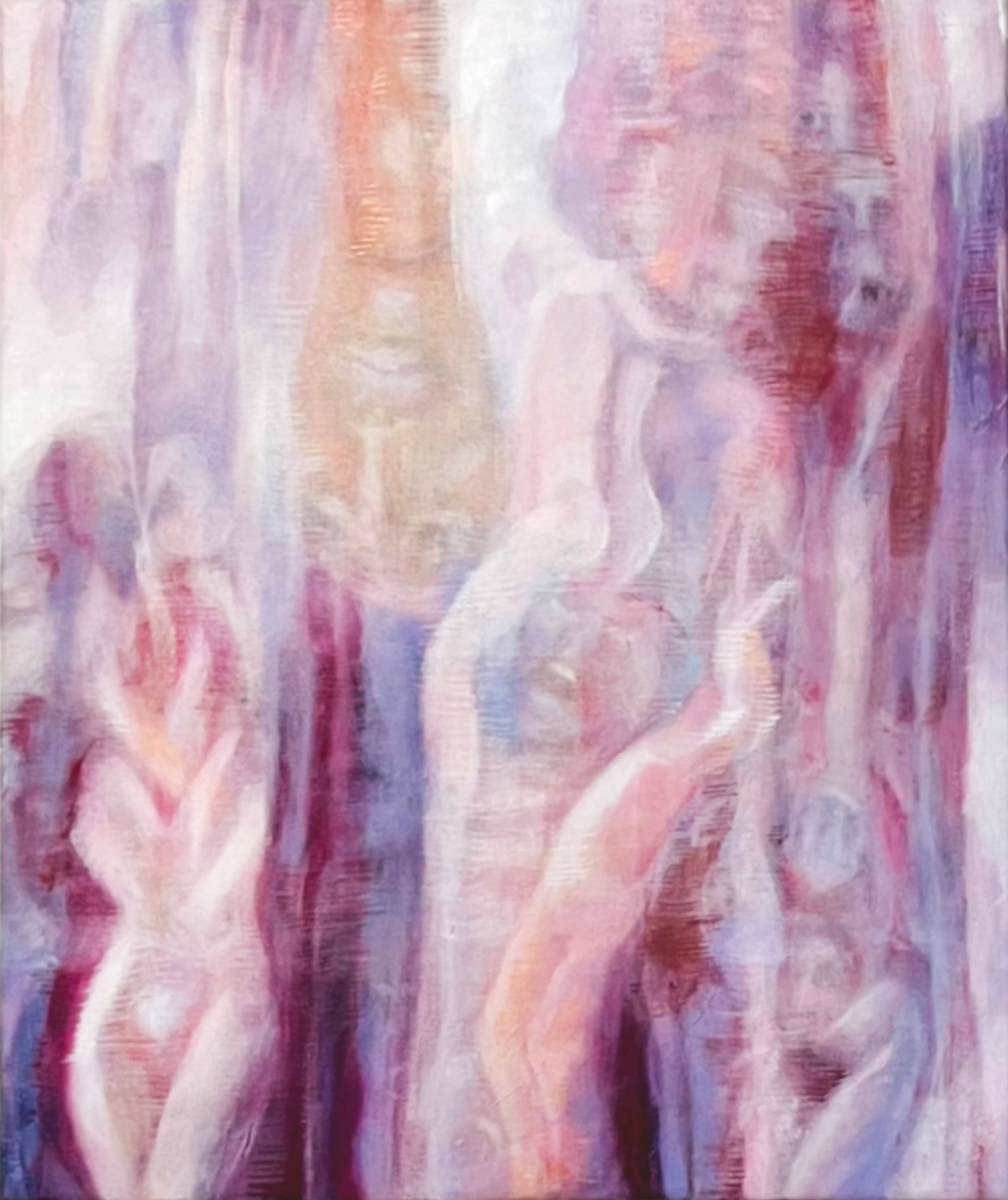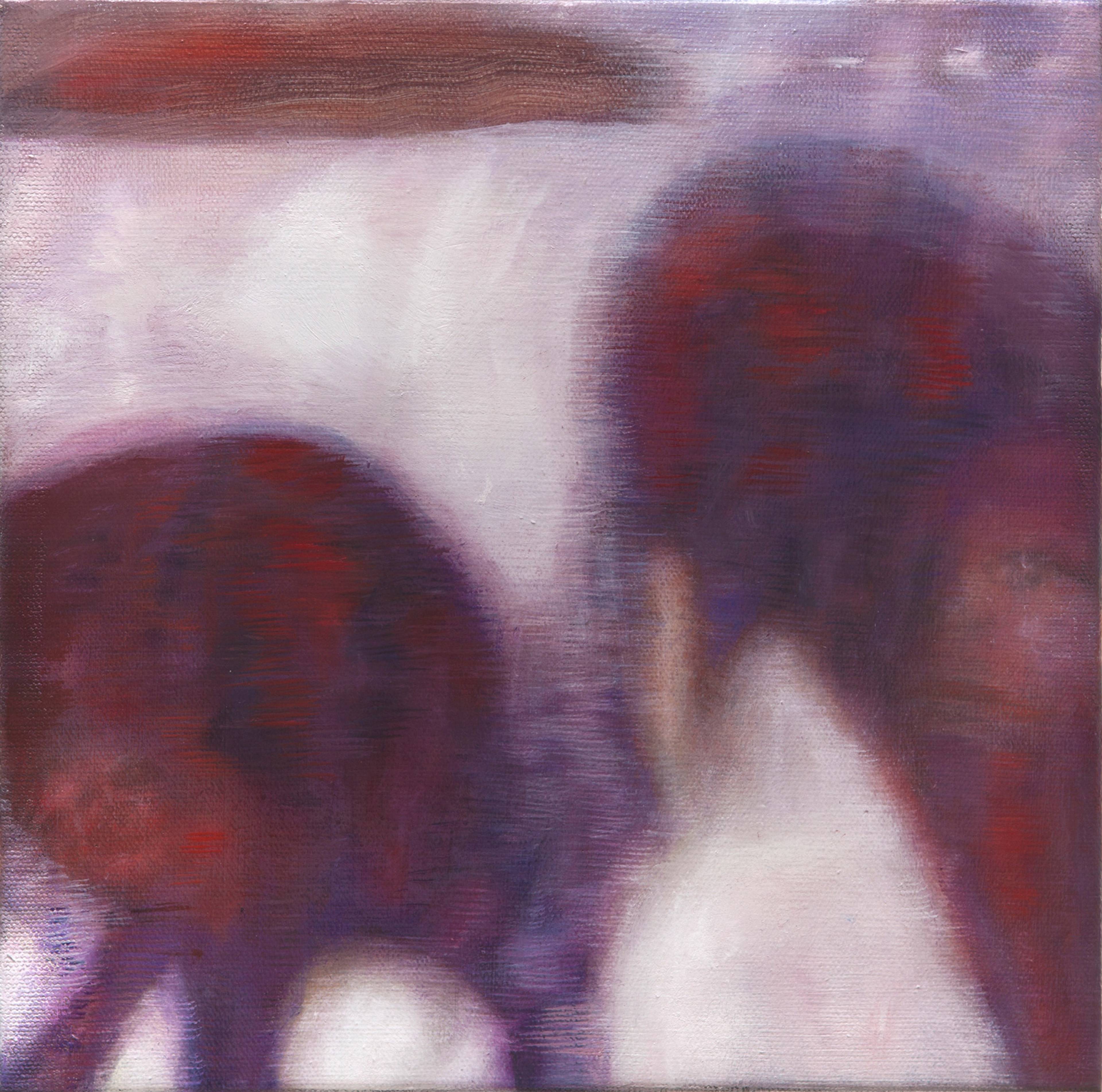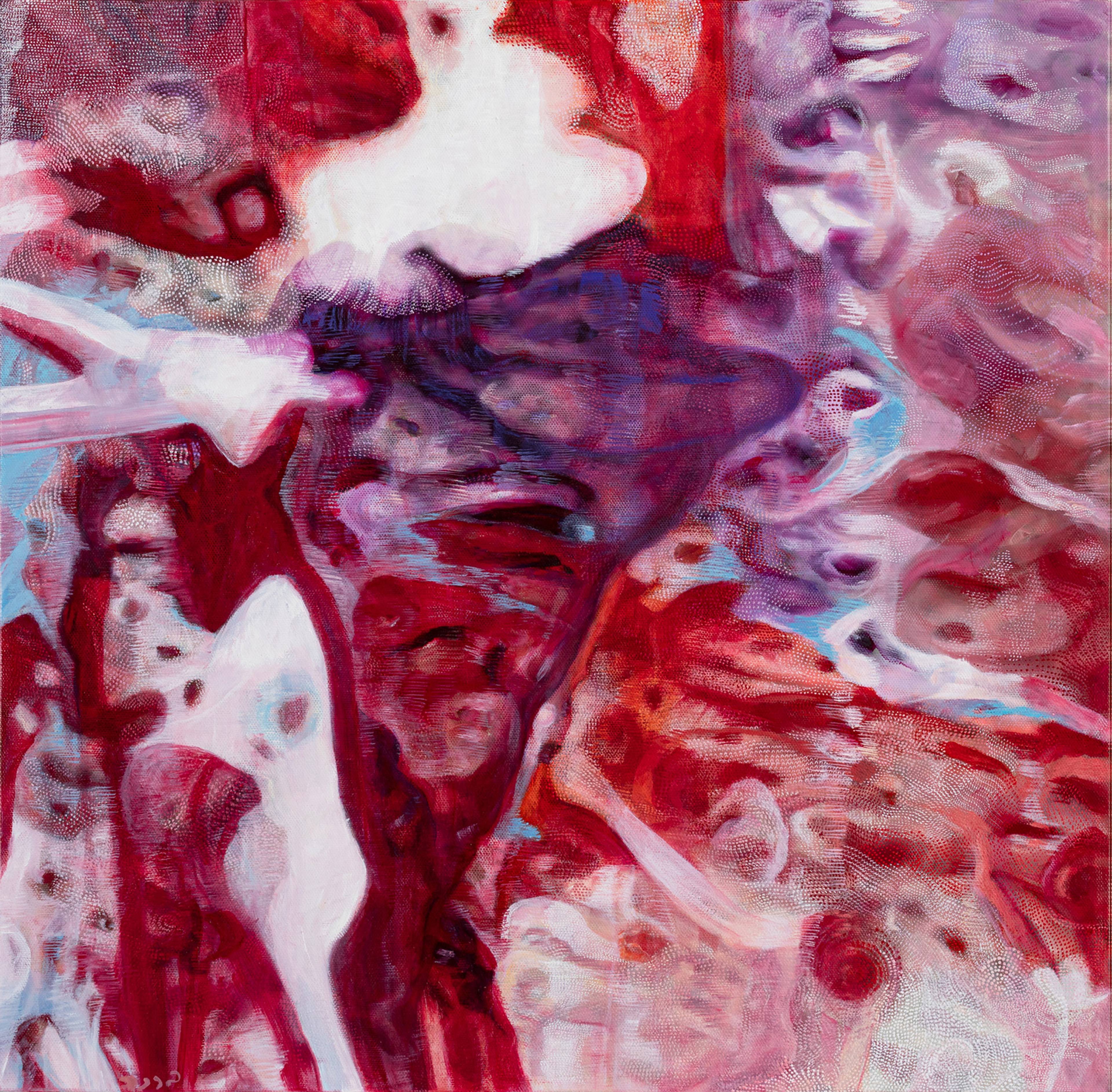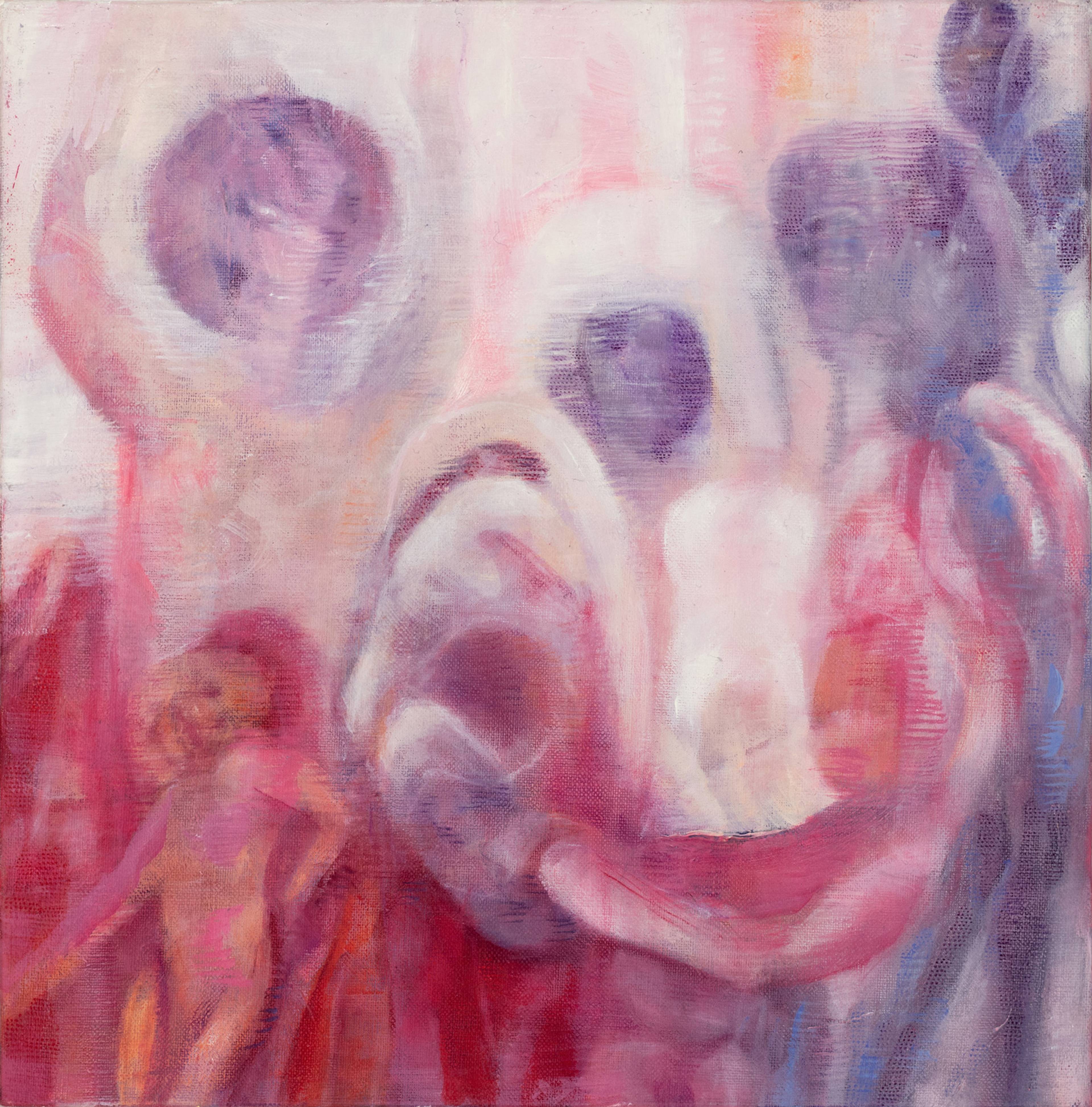I was on the train home from work one night in May, circling Berlin’s Ringbahn, when my dad called from Colorado. His timing was weird. Something was obviously amiss. We usually spoke on Sunday nights, bonding over Bloomberg headlines about, e.g., disgraced startup founders. (The remit for this column runs in the family). That evening, a Wednesday, he had called a little earlier than was typical, speaking in a tone I’d never heard him produce before, to say that my mom had had a seizure. She had been found sitting on the ground, semiconscious, in the park where she walked every morning. The cause of the seizure, they rapidly determined, was a brain tumor. And everything blurred out of focus from there.
I spent the summer back and forth between Berlin and my hometown of Denver, Colorado – loafing around, lacking the will to do much besides draw myself long, overheated baths, attempting to give myself some kind of rest cure of the sort administered in clinics in the Swiss Alps. By mid-June, my mom had been diagnosed with a rare and aggressive kind of brain cancer, which she continues to battle as of this writing. She is my confidante, my gal pal – my dahhhhling, as she says sometimes, in an exaggerated, working-class-Bostonian accent. I’ve wanted and needed to keep the details of her diagnosis somewhat private. Lately, I can’t write without more-or-less explicitly writing about her, though – which means that, increasingly, I just can’t write at all.
This is my last “User Error,” a decision taken in view of changing life circumstance. My world has, suffice to say, been upended. The disorientation I’ve felt at the hand of such a sudden shift – everything falling apart in an instant – has prompted me to reconsider some positions I’ve taken in previous columns. One of the first installments of “User Error,” penned on the heels of the much-derided documenta fifteen, detailed my fatigue at the online rhetoric around “extinction,” tracking what I then saw as a defeatist fixation on humanity’s demise. I believed – at that point with some degree of earnestness – that crypto had potential, if not to save the world, then at least to save the bees. The bees, for their part, are still dying at an alarming rate; I still sleep in my BeeDAO t-shirt sometimes, to the extent that I can be said to sleep at all.
Bracha L. Ettinger, Eurydice n.51, 2012–16, oil on canvas
Who can afford to be an optimist in the chtonic assholocene polycrisis anyway? In her excellent book of essays, Death by Landscape (2022), Elvia Wilk writes: “I would wager that most dystopian writers don’t really think utopia is for suckers – it’s more that pinning one’s politics entirely on hope while facing extinction feels somewhat delusional.” She’s right. My social media feeds are packed with users (neo-chibi NFT avatars calling forth the Kali Yuga) who are obsessed with dying, or users (freakishly smooth-skinned software entrepreneurs) who are obsessed with living forever. The latter strike me as the scarier bunch.
Franco “Bifo” Berardi writes in his new book, The Third Unconscious (2023), that it is precisely the unwillingness to intimately confront death at scale – fueled by a toxic fantasy of infinite resources and perpetual growth – that brought our world to such a state of disaster in the first place. While “we are not prepared to spend our lifetimes under the shadow of extinction,” he writes, “we must learn to do it, because accepting the horizon of extinction, and avoiding panic, will probably be the only way to escape extinction itself, the only way to find a different horizon, a different future.” I’m increasingly amenable to this point of view, although not yet sure what to do with it.
We are not, and can never be, prepared. This is what “prepper” logic – acquiring a luxury doomsday compound like Peter Thiel – gets wrong. Back in Colorado, which is rumored to be the site of numerous celebrities’ apocalypse bunkers, I’m legally stoned (can you blame me?), watching Andrea Fraser talks on YouTube. Reading aloud from an essay on Fred Sandback, she calls on Freud’s Mourning and Melancholia (1917), a text with which I’ve grown intimately familiar of late. For Freud, mourning is a healthy response to the loss of a specific, beloved object. Melancholia is much more destructive. It is an inability to assimilate loss, and can exacerbate guilt, self-blame, or worthlessness. It looks a bit like mourning, on the face of things – but the loss it addresses is undefined, or resists being brought forth to conscious awareness.
Like Bartleby, we would all “prefer not to.” Maybe it’s fatigue-induced, seeking relief from the incessant demands of 24/7 capitalism, careening towards meltdown. Terminally online, we “can’t even.”
The best advice I got in the days following my mom’s diagnosis was: Are you a teeth grinder? Well, you’re about to be. Take preventative measures immediately. As my dentist fits me for a mouth guard, he’s unconvinced by my spiel that the etiology of this intensified teeth-grinding spell is some psychosomatic return of the repressed, my body attempting to bring the melancholic un-thought known into the mournable realm of symbolization. To his credit, though, I couldn’t enunciate all the psychoanalytic terminology very clearly, because his hands were in my mouth.
Melancholia, as Freud conceived of it, is different from depression, even though they’re used interchangeably in common parlance. In the face of extinction, maybe the latter actually has some merit. I’ve noticed that a lot of recent online micro-trends bask in the jouissance of renouncing effort – a kind of depressive stance that looks like vacating subjective agency, giving up, crawling back under the covers. This is not exactly melancholia. It’s more in line with Freud’s notion of the death drive. It’s taking pleasure in a kind of existential inertia. Stuff I’ve detailed in this column before, from vegging out and “going goblin mode” to the refusal of domestic effort (and playfully regressive jeune fille coding) demonstrated by Girl Dinner. Other phenomena, written up elsewhere, too: Think “PC streamers like Pinkydoll, who perform as blank vessels to carry out viewers’ commands, like some peer-to-peer reanimation of the 70s’ rules-based performance art. Even the agitated distraction of my nightly doomscroll seeks to dull subjectivity by blasting over any semblance of an internal monologue, nullifying the risk of having a thought.
Like Bartleby, we would all “prefer not to.” Maybe it’s fatigue-induced, seeking relief from the incessant demands of what Jonathan Crary calls “24/7 capitalism,” careening towards meltdown. Terminally online, we “can’t even.” I’d like to think this engenders a productive refusal – a wildcat strike of the soul, against a world where all manner of activity is increasingly apt to be flattened into work – yet it could just as easily be a slide into the techno-solutioninst conditions that seek to render all our human activities as value-productive in the first place.
Bracha L. Ettinger, Medusa - Rachel - Pieta, 2017–22, oil on canvas
In the psychoanalytic view, crawling back into bed may be a sublimation of the desire to crawl back up the canal from whence we came. I really like something that Jamieson Webster said in a radio interview about her newish book Disorganization and Sex (2022): “There’s a nostalgia,” she says, to be found in ”some image of going back to a place where things felt good” – to the womb, to pre-capitalism. But like any desire worth desiring, it’s eternally just out of reach.
One summer night, after taking a smidge too much of everyone’s favorite veterinary anesthetic, I started waxing poetic about my “birth trauma.” Twentysomething years ago, I was born by Caesarean section, two months premature, which, of course, I don’t actually remember. There I was, lying on the floor of my crush’s apartment, imagining the feeling of being in an incubator in the newborn ICU, whispering: I just wanna go back in the warm box. Please put me back in the box.
Douglas Rushkoff argues that the going transhumanist trend in Silicon Valley, notionally vying for extended or eternal life, is paradoxically regressive along these same lines. The only thing being returned to in bids for singularity is the feeling of being in utero. Or, optimized to the point of disembodiment, tended to by a doting AI girlfriend who maternally anticipates one’s every need, as Liara Roux argues in a recent essay for Spike. The legendary futurist Ray Kurzweil’s fantasy of immortality is consciousness uploaded to the Cloud, a brain in a jar hooked up to a supercomputer, resembling the state that precedes conscious life in the world. To slink back to the genesis of it all, yielding to some entropic pressure much stronger than the fatigue-induced delirium of banally death-driven Goblin-Mode Girl-Dinner Rot Nights.
The going vision of technological augmentation, and its attendant fantasy of eternal life – generally, lived in the absence of all those things that constitute actual living – is an accelerant of our struggles, not a balm for them.
Trust me, I am sympathetic to the impulse to overcome the limitations placed upon us by biology – maybe more so now than ever before. But I think that the going vision of technological augmentation, and its attendant fantasy of eternal life – generally, lived in the absence of all those things that constitute actual living – is an accelerant of our struggles, not a balm for them.
Is it too on-the-nose to point out, here, that “matrix” is Latin for womb? The world is gone, I must carry you. This line, from the poet Paul Celan, has been taken up by Bracha Lichtenberg Ettinger – poet, painter, psychoanalyst. She adopted it as the basis for her theory of “carriance,” which I thought about a lot in the hospital this summer, sitting beside my mom while she recovered from brain surgery. In Ettinger’s view, every one of us comes into being gifted with an innate capacity for reparative action, stemming from what she calls “matrixial borderlinking” –that is, the experience of having been gestated by a mother. This experience echoes, says Ettinger, in the embodied memory of intersubjective care.
To be human is to have been carried is to have the capacity to care. In the shadow of enormous trauma – “in spite and in view of the residues and traces of the horrible that are circulating, as if by radiation, in our time-space,” as Ettinger poignantly puts it – we are called upon to dip into this remembrance. It is patterned into us on the most primal, embodied level, at least as strongly as is the facile wish to regress. Our imperative, then, is to “wit(h)ness” – to sustain and solidarize, to care for and carry one another – not to escape into the Cloud or some doomsday compound and reinvent the matrix by means outside ourselves.
Bracha L. Ettinger, Angel of Carriance n.1, 2017–21, oil on canvas
___





